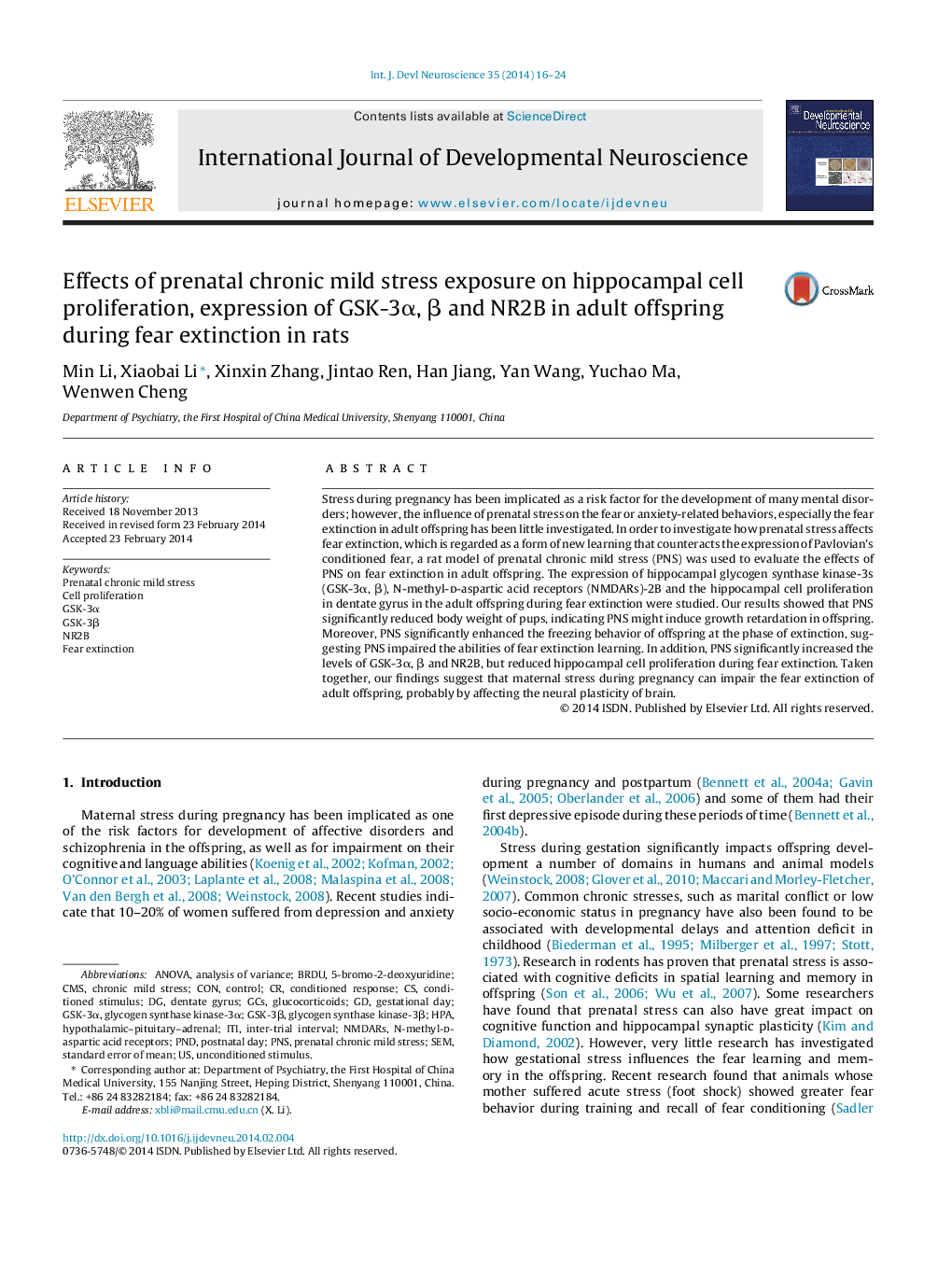| Article ID | Journal | Published Year | Pages | File Type |
|---|---|---|---|---|
| 2785990 | International Journal of Developmental Neuroscience | 2014 | 9 Pages |
•Prenatal chronic mild stress decreased body weight of adult male offspring.•Prenatal chronic mild stress impaired fear extinction.•Prenatal chronic mild stress induced a reduction of hippocampal neurogenesis.•Prenatal chronic mild stress increased the expression of GSK-3s.•Prenatal chronic mild stress enhanced the level of NR2B.
Stress during pregnancy has been implicated as a risk factor for the development of many mental disorders; however, the influence of prenatal stress on the fear or anxiety-related behaviors, especially the fear extinction in adult offspring has been little investigated. In order to investigate how prenatal stress affects fear extinction, which is regarded as a form of new learning that counteracts the expression of Pavlovian's conditioned fear, a rat model of prenatal chronic mild stress (PNS) was used to evaluate the effects of PNS on fear extinction in adult offspring. The expression of hippocampal glycogen synthase kinase-3s (GSK-3α, β), N-methyl-d-aspartic acid receptors (NMDARs)-2B and the hippocampal cell proliferation in dentate gyrus in the adult offspring during fear extinction were studied. Our results showed that PNS significantly reduced body weight of pups, indicating PNS might induce growth retardation in offspring. Moreover, PNS significantly enhanced the freezing behavior of offspring at the phase of extinction, suggesting PNS impaired the abilities of fear extinction learning. In addition, PNS significantly increased the levels of GSK-3α, β and NR2B, but reduced hippocampal cell proliferation during fear extinction. Taken together, our findings suggest that maternal stress during pregnancy can impair the fear extinction of adult offspring, probably by affecting the neural plasticity of brain.
